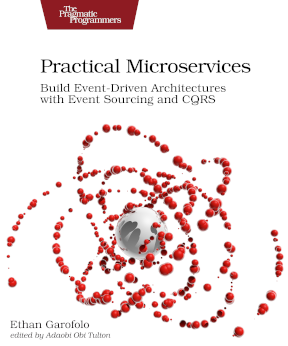There’s this credit union in the Austin, Texas area whose name I’m going to leave out of this email because, well, I don’t know what trouble I’d get into if I called them out in a negative light.
They had these advertisements that said, “
We can discuss the merits of it another time, but financial institutions have to lend out deposits to stay alive, and I get that.
I also get that sometimes folks fall on bad times and need to resort to debt to not go bankrupt. I’ve been there.
But this line of advertising always struck a negative chord in me. If the way I live is dependent on getting loans, I have a problem. I won’t be able to continually get them, so I’ve gotta make some sort of change. And the ads always pictured people on vacations or buying boats.
So often when I or others preach the message that attention to detail matters in software development, we hear, “but what about
What about it? It’s exceptional. When the building is burning, you don’t take time to wipe the table down before you head out, sure. No one’s arguing that.
What we’re saying is, if you operate permanently in that mode, it’ll get away from you somehow. It might be burnout, retention troubles, or your system just collapsing, but if you don’t address the conditions that lead to the building catching on fire, you risk going out of business.
The good news is that you can turn it around, but that transformation doesn’t even start until you change the way you do work. Some things that help are working in smaller batches, removing handoffs in your development process, and a radical focus on quality. When those are your norm, you’ll find adapting to new information goes better.
Your disadvantage is that if all you’ve ever experienced is fire drill mode, you wouldn’t know what sustainable development looks like. Anyone preaching it would like insane. You might literally call them that.
But your people need you as management to recognize the need for these changes and to signal that they’re the new norm. If you wait for it to happen organically, you’re going to wait a long time because your people aren’t going to change the way they work until you show them it’s safe. You have to show them that they won’t be punished for making the changes your organization needs.
Yesterday’s email was a short question about how we might view technical debt differently if we gave it a less sophisticated name. Over the next couple of days or so, we’ll talk through the circumstances when it makes sense, and what to do after you’ve “taken out your loan.”
